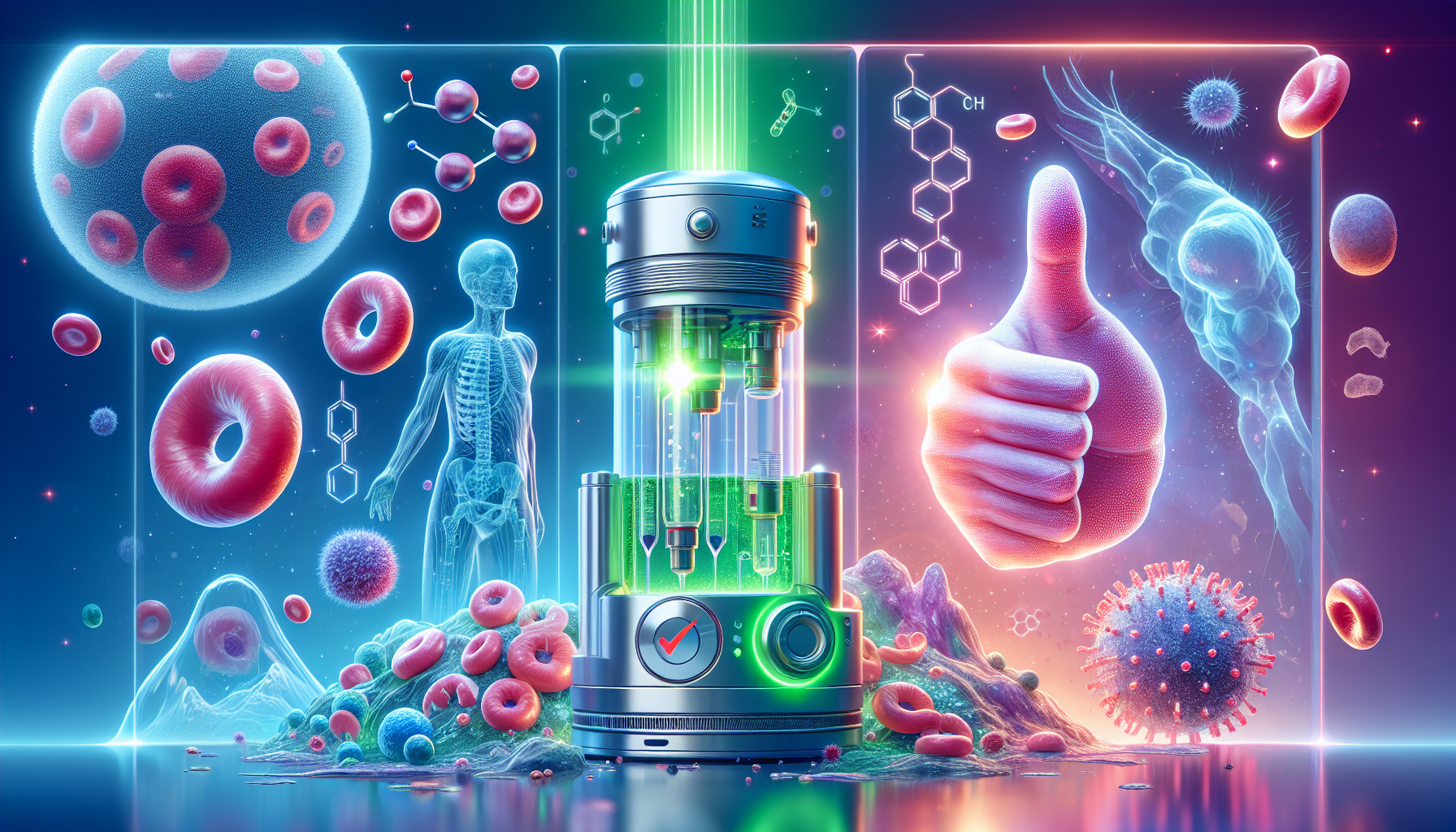Localized Drug Delivery: A New Hope for Fighting KRAS+ Tumors
Key Takeaways
- PST's gel formulation reduces or eradicates KRAS+ tumors.
- Localized drug delivery minimizes toxicity compared to oral administration.
- Clinical trials are needed to validate these promising preclinical results.
Did You Know?
PST's Innovative Approach to KRAS+ Tumor Treatment
Postsurgical Therapeutics, Inc. (PST) recently achieved a milestone in cancer treatment with its successful in vivo study of a novel injectable gel formulation. This formulation targets multiple KRAS mutated solid tumors using a combination of MEK and mTOR inhibitors. Traditionally administered orally, these drugs have faced challenges due to toxicity, which PST aims to overcome with its localized delivery method.
The study, conducted on mice, showed promising results with the new gel formulation effectively reducing or eradicating tumor growth in several cancer types. This breakthrough could offer new hope for patients suffering from pancreatic, lung, colorectal, and gastric cancers with KRAS mutations.
Understanding the Mechanism: Targeting MAPK and PI3K Pathways
The injectable gel developed by PST operates by controlling the release of MEK and mTOR inhibitors directly into the tumor. These pathways (MAPK and PI3K) are crucial in many cancer types, and targeting them simultaneously can suppress tumor growth. This mechanism allows for a more localized and potentially less toxic treatment compared to oral drug administration.
For example, the study reported success in targeting pancreatic cancer cell lines like Mia PaCa-2 (G12C mutation), lung cancer cell lines such as NCI H441 (G12V mutation), colorectal cancer cells like SW3 (G12V mutation), and gastric cancer cells such as AGS (G12D mutation).
Addressing Drug Resistance and Toxicity
One of the critical challenges in cancer therapy is drug resistance and toxicity. Often, the use of a single drug is limited due to the cancer cells developing resistance. However, combining multiple drugs can lead to cumulative toxicity that limits their safe administration. Previous clinical investigations have struggled to find a safe dosage for oral combinations of MEK and mTOR inhibitors.
This new injectable formulation presents a novel solution by enabling intratumoral delivery, which focuses the drug's effect on the tumor, potentially reducing systemic toxicity and allowing for higher drug concentrations where they are needed most.
Promising Results and Future Clinical Trials
If these results can be replicated in clinical trials, this new formulation could significantly extend the lives of patients with KRAS+ tumors. Dr. Soonkap Hahn, the Chairman and Chief Scientific Officer of PST, expresses optimism regarding the potential of these findings to lead to safer and more effective treatments for cancer patients.
PST's commitment to reducing toxicity through localized administration opens new avenues for cancer treatment. The company plans to advance this technology through partnerships and collaborations, aiming to revolutionize therapeutic practices for solid tumors.
Pioneering Advanced Drug Delivery Technologies
Based in Irvine, California, PST is at the forefront of leveraging advanced drug delivery technologies. Their innovations are designed to enhance the efficacy and safety of treatments for solid tumors and other diseases. This recent study showcases their dedication to developing cutting-edge solutions that address both efficacy and safety concerns in cancer therapy.
The future of cancer treatment could be dramatically improved by such pioneering work. Through collaborative efforts, PST aspires to bring these advanced therapies to market, providing new hope to patients worldwide.






